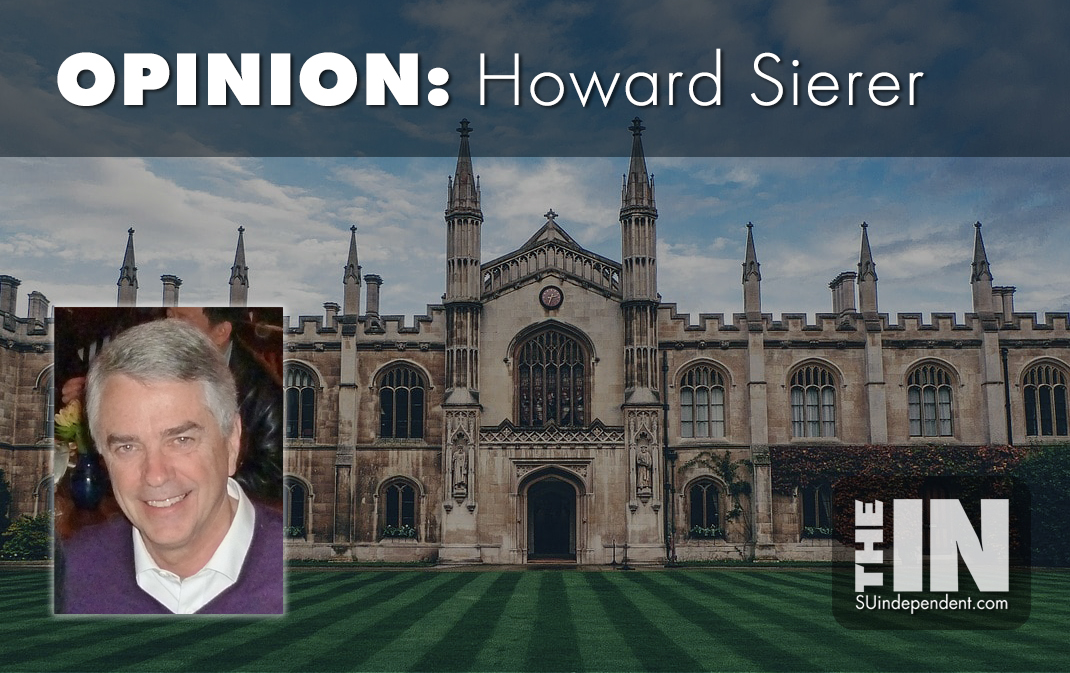
Politics Corrupts Elite Universities
– By Howard Sierer –
The presidents of Harvard, MIT, and the University of Pennsylvania are little more than political hacks. Called before Congress to answer questions about student and faculty antisemitism, they embarrassed themselves when asked to explain why attacks on Jewish students and campus-wide calls for Israel’s destruction didn’t violate their own campus rules against hate speech and violence.
The answer, of course, is that in their progressive worldview, Hamas is a victim of Israeli colonialism. By seeing the world as divided into powerful colonialists and their oppressed victims, progressives justify hatred and violence. This corrupt moral sense permeates what we used to call our country’s elite universities. Both Harvard’s and Penn’s presidents have since resigned.
CNN’s Fareed Zakaria offered a cogent analysis of how these former pinnacles of education fell from the heights over the last several decades. Zakaria self-identifies as a “centrist,” though he has been described variously as a political liberal, a conservative, a moderate, or a radical centrist. George Stephanopoulos said, “He’s so well versed in politics, and he can’t be pigeonholed.”
Zakaria begins: “When one thinks of America’s greatest strengths, the kind of assets the world looks at with admiration and envy, America’s elite universities would long have been at the top of that list. But the American public has been losing faith in these universities for good reason.”
He then describes the widespread transformations that have taken place at these elite universities, a transition that started with the best of intentions: colleges wanted to make sure young people of all backgrounds had access to higher education and felt comfortable on campus.
Zakaria continues: “But those good intentions have morphed into a dogmatic ideology and turned these universities into places where the pervasive goals of political and social engineering [are paramount instead of] academic merit. As the evidence produced for the recent Supreme Court case on Affirmative Action showed, universities have systematically downplayed merit-based criteria for admissions in favor of racial quotas.”
To work around the ruling, some universities are eliminating standardized tests like the ACT and SAT as requirements for admission. The unintended consequence: bright students from poor backgrounds will no longer have an opportunity to shine while others less qualified will be admitted.
Zakaria makes another observation long obvious to many: “In the humanities, hiring for new academic positions now appears to center on the race and gender of the applicant as well as the subject matter, which needs to be about marginalized groups. A white man studying the American presidency does not have a prayer of getting tenure at a major history department in America today. Grade inflation in the humanities is rampant. At Yale, the median grade is now an A.”
The new subject matter introduced at many universities – leading examples are widespread American systemic racism and Western nations’ colonialism – fostered a generation of students who felt threatened by any idea at variance with what their politically-focused professors were teaching. Zakaria notes this led to a “collection of ideas and practices that we have now all heard of, safe spaces, trigger warnings, microaggressions.”
Zakaria asks: “In this context, isn’t it understandable that Jewish groups would wonder why do safe spaces, microaggressions, and hate speech not apply to us? If universities can take positions against free speech to make some groups feel safe, why not us? Having coddled so many student groups for so long, university administrators found themselves squirming, unable to explain why certain groups, Jews, Asians, don’t seem to count in these conversations.”
By allowing the targeting and even assaulting of Jewish students, the intellectual and political corruption of too many of today’s universities was exposed, exemplified by the elite university presidents who hemmed and hawed when asked if advocating genocide against Jews violated their codes of conduct.
Professors at many universities teach courses that undermine classical liberal values and core American principles, invariably finding irredeemable fault with existing Western and especially American institutions and society. These courses eventually coalesced into college degrees like “African-American Studies,” majors that leave their graduates with a distorted and inherently biased view of the world and with no preparation for work related to their studies.
Zakaria explains that “the center of a university is the free expression of ideas. And that while harassment and intimidation would not be tolerated, offensive speech would and should be protected. As CNN’s Van Jones has eloquently said, the point of college is to keep you physically safe but intellectually unsafe, to force you to confront ideas that you vehemently disagree with.”
Summing up his feelings and mine, Zakaria says all this is “the inevitable result of decades of the politicization of universities. America’s top colleges are no longer seen as bastions of excellence but partisan outfits …They should abandon this long misadventure into politics, retrain their gaze on their core strengths, and rebuild their reputations as centers of research and learning.”
Viewpoints and perspectives expressed throughout The Independent are those of the individual contributors. They do not necessarily reflect those held by the staff of The Independent or our advertising sponsors. Your comments, rebuttals, and contributions are welcome in accordance with our Terms of Service. Please be respectful and abide by our Community Rules. If you have privacy concerns you can view our Privacy Policy here. Thank you!
Click here to submit an article, guest opinion piece, or a Letter to the Editor




